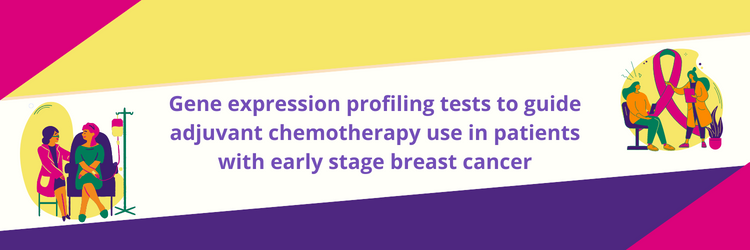HIQA’s advice to the Health Service Executive National Cancer Control Programme arising from this rapid HTA is as follows:
In Ireland, on average approximately 1,800 cases of HR+, HER2- stage I-IIIa breast cancer were diagnosed each year between 2015 and 2019. The majority of these patients receive Oncotype DX® testing.
Oncotype DX® is a gene expression profiling (GEP) test that is used to provide information on disease prognosis and to predict the potential for benefit from adjuvant chemotherapy. This information supports clinical decision-making regarding the need for adjuvant chemotherapy.
There are three other commercially available GEP tests (MammaPrint®, EndoPredict®, and Prosigna®), two of which are indicated for predictive use (MammaPrint® and EndoPredict®). Currently, these three tests are not reimbursed by the HSE.
To provide advice to the HSE on these alternative tests, a review of the clinical effectiveness evidence was undertaken. Taking into account the notable limitations of the evidence,.
Among LN- patients:
- All four commercially available tests examined in the HTA provide prognostic information.
- Considering predictive ability, although there are limited data to differentiate between the tests, the available evidence supports the continued use of Oncotype DX®.
Among LN+ patients:
- All four commercially available tests examined in the HTA were found to provide prognostic information.
- Considering predictive ability, the evidence most strongly supports the continued use of Oncotype DX® in postmenopausal women, based on available five-year follow-up data.
A decision to reimburse GEP tests other than Oncotype DX® should take account of differences in factors such as test indications, test costs and feasibility of use, particularly with respect to laboratory resources.
In order to optimise the management and use of GEP tests in Ireland, consideration should be given to:
- collecting data on GEP test use, linked to treatment and patient characteristics and outcomes, as part of a national database. These data could help clarify the clinical impact of these tests in Ireland.
- developing guidance to outline the patient subgroups in which they should be used, the appropriate tumour sampling methods and preparation techniques, and interpretation of test results.
